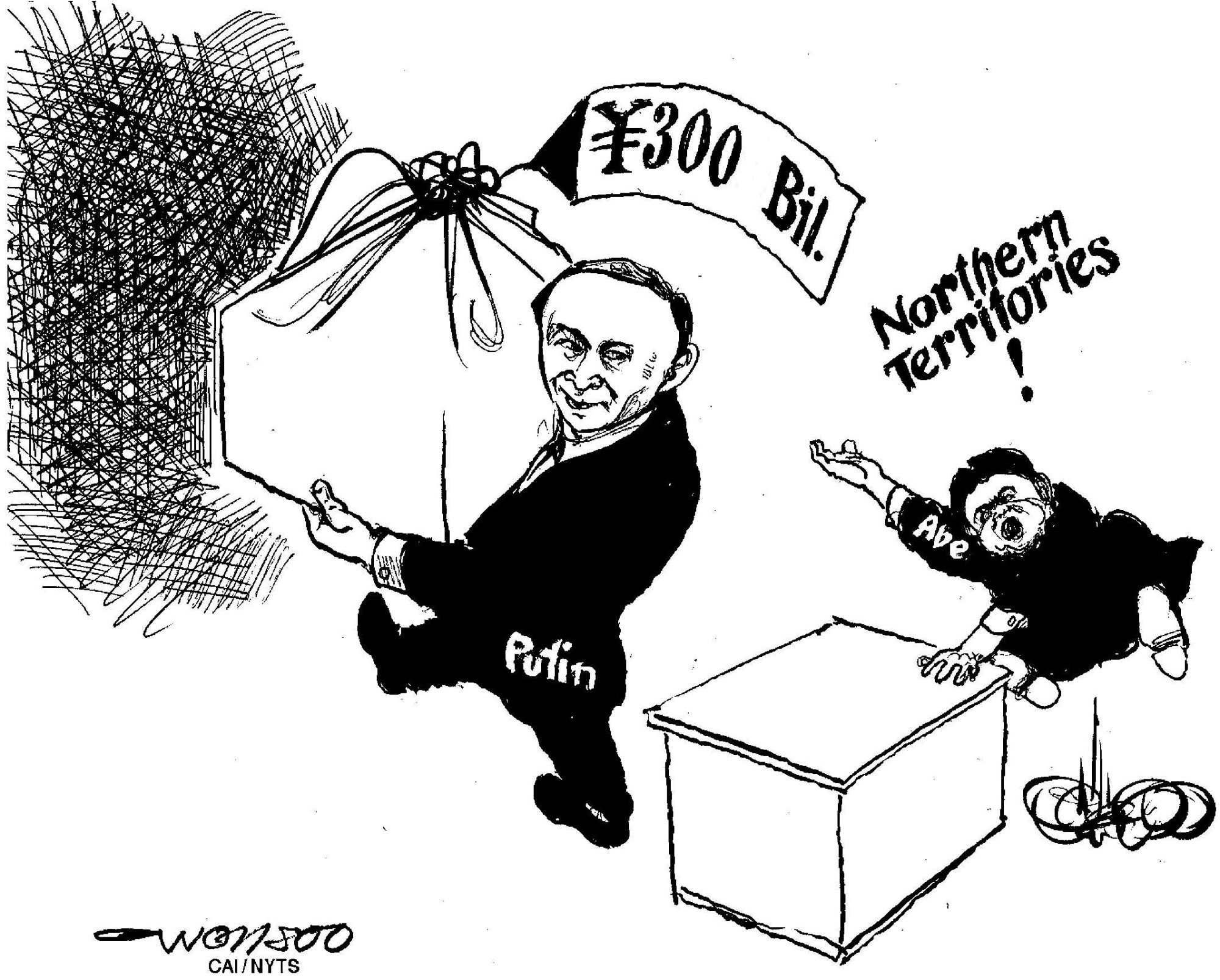Russian President Vladimir Putin's much heralded visit to Japan on Dec. 15-16 facilitated a great deal of bonding and camaraderie between the two leaders. Putin was invited to a hot spring with Prime Minister Shinzo Abe in his home prefecture of Yamaguchi. However, there was nothing in the way of diplomatic breakthroughs on key issues, including sovereignty over the disputed islands off Hokkaido and a long-awaited formal World War II peace treaty between Japan and Russia.
The visit did launch cooperation in economic areas including investments by Japan in industries ranging from Russia's energy to health care, which could serve as a platform for developing mutual trust and cooperation — principles which both leaders acknowledged to be crucial in the goal of reaching political consensus on the disputed islands and a peace treaty. In the meantime, both leaders agreed to start talks on joint economic cooperation on the disputed islands, reportedly to be conducted through a special framework involving sectors such as tourism, culture, fishing and medicine.
On the political front, there was also an agreement to re-start talks under the "2-plus-2" formula, involving both sides' ministers of defense and security. On this matter, both Japan and Russia claimed common ground on security issues in Northeast Asia, including shared concerns over North Korea's nuclear program and the need to formulate a joint response — potentially indicating a gradual development in bilateral diplomacy, for Japan, that may go beyond foreign policy directions set by U.S. administrations.



















With your current subscription plan you can comment on stories. However, before writing your first comment, please create a display name in the Profile section of your subscriber account page.